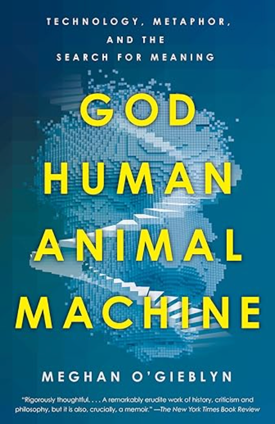I love this essay. Paul Graham distinguishes between the "maker's schedule" and the "manager's schedule" and talks about the dilemma between offending someone or losing half a day's work. Fits me perfectly, especially since some of my meetings are half a mile away. His point about the difficulty of switching modes is right on: "For someone on the maker's schedule, having a meeting is like throwing an exception. It doesn't merely cause you...
Freakonomics summarizes Paul Graham's argument that programmers and writers are more disrupted by meetings than managers because of the nature of the tasks programmers and writers are involved in. I completely agree. One hour-long meeting can blow apart my entire afternoon.
Gruber points out that free access to news content means news organizations will need to lighten their staffing models, requiring every one in the organization to contribute content. The old model with executives and a heavy number of employees in a company is going the way of the dinosaurs.
I'm giving an STC webinar on blogging this Wednesday, July 29, from 1:00 to 2:30 p.m. ET. Here's the title and description: Converting Readers from Casual Subscribers to Devoted Followers: Best Practices for Blogging Although many people feel blogging is an activity with no best practices or rules—you publish what you want, when you want, and how you want—these same bloggers usually crave readership, comments, and visibility. They want to...
Listen here: In this podcast, Rahel Bailie, a content strategist from Vancouver, B.C., talks about content strategy in the context of technical communication. I briefly alluded to my conversation with Rahel in my post last week titled Three Questions to Start Thinking Like a Content Strategist. In this podcast, Rahel goes into much more depth. Rahel starts by defining content strategy as a "repeatable process or methodol...
As part of the solution to STC's financial situation, some members have talked about making Intercom an online magazine only, removing the printed version that is mailed out to thousands of members each month. Many people think the move from paper to online would be a tremendous blow to the STC, one that would significantly decrease member value towards one of STC's most attractive assets. Sometimes people talk about this potential move, ...
Writer River is a collaborative social news site that allows technical communicators to both find and share links to interesting content they find online. As more people contribute to the site – sharing links to blog posts, magazine or journal articles, podcasts, books, videos, and even literature -- the more engaging the site becomes. The dozens of highly relevant, useful articles that flow through Writer River each week can help you sta...
What can Technical Authors learn from celebrity chefs and musicians? Cherryleaf Technical Authors Blog. Ellis is a marketing genius, so I pay attention when he writes on this subject. In this post, he explores a business model behind giving away content for free. You give some content away for free, but in return collect an e-mail address that you pass to your marketing team, who then pitches products to the consumers who received the fre...
Toward Content Quality :: UXmatters. In this article, Colleen Jones explains about ten specific principles that content strategists look at. This article does a nice job of making content strategy more practical (rather than a nebulous, hard to grasp concept). According to Jones, these are the points (beyond mere grammar and style) that a content strategist looks at: "testing content with users, monitoring content metrics, establishing go...
Rachel Lovinger gets specific about what content strategists do on a practical level and includes specific strategies to consider and questions to ask.
I wrote a guest post on Unstoppability for my friends Scott Nesbitt and Aaron Davis at DMN Communications. Scott and Aaron are two technical communicators based in Toronto who have an engaging blog I regularly follow. By the way, I rarely write guest posts. In my 3+ years of blogging, this is only the second guest post I have ever written. I hope you enjoy it. Read my guest post on Unstoppability
Last week I spoke with Rahel Bailie, a content management/strategist in Vancouver B.C., about content strategy. I'll post a podcast of the interview soon, but I thought I'd write a few notes and thoughts on content strategy first, much of which I gathered from my conversation with Rahel. Introduction to Content Strategy With almost any project, whether it's a software application or website, most likely you have multiple groups each respo...
Cool article about the imaginative empathy fiction writers use to get inside their characters' heads. The author explores the science behind our brain's ability to do this despite lacking the experiences of others.
""What We're Reading" feature in the New York Times Technology section The New York Times recently started a "What We're Reading" feature in their Technology section. In "What We're Reading, a group of technology columnists publish links to interesting articles they find online -- from any site on the web, not just the New York Times. A couple of weeks ago I also started a "What I'm Reading" section on my blog, which feeds i...
A List Apart: Articles: Content-tious Strategy. This looks to me like a seminal post in the content strategy movement. Jeff Macintrye is both witty and articulate. Content strategy is a good way of thinking about our profession. It's a lot sexier term than "technical communication" and encompasses more. Content strategy feels more like the direction people who shout "I'm more than just a writer" have been trying to head for years. Thanks ...


